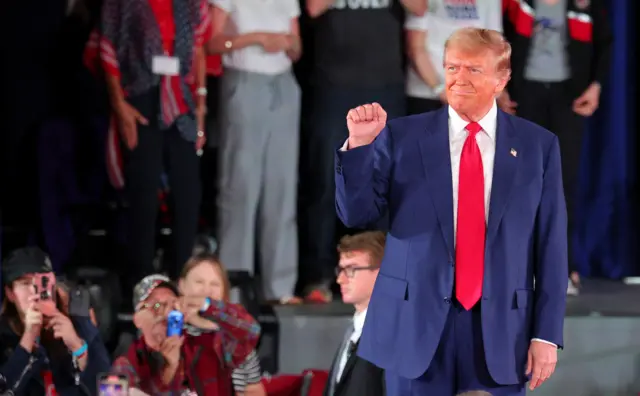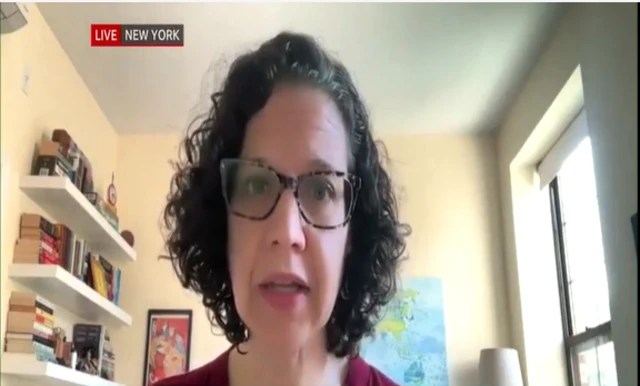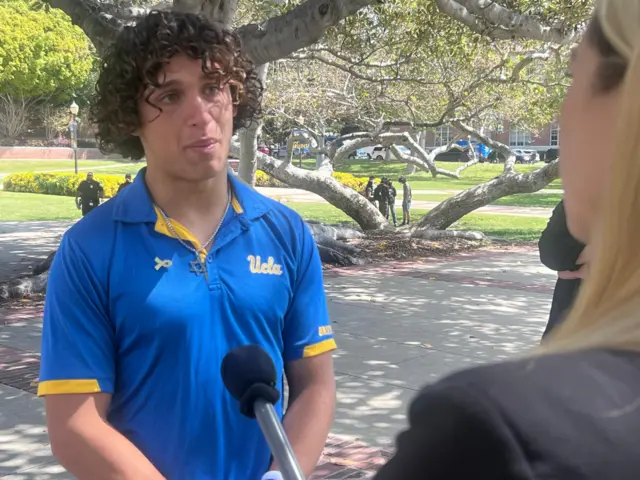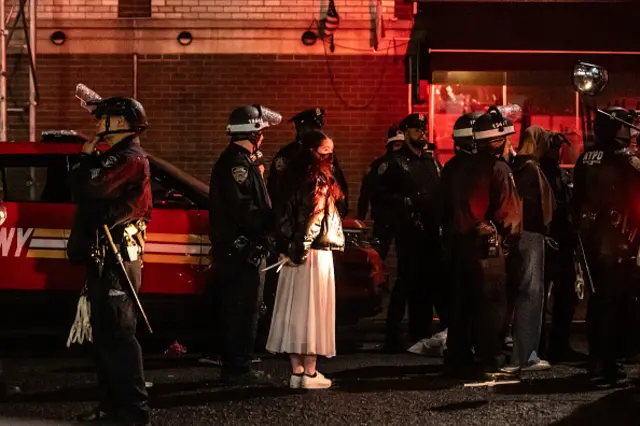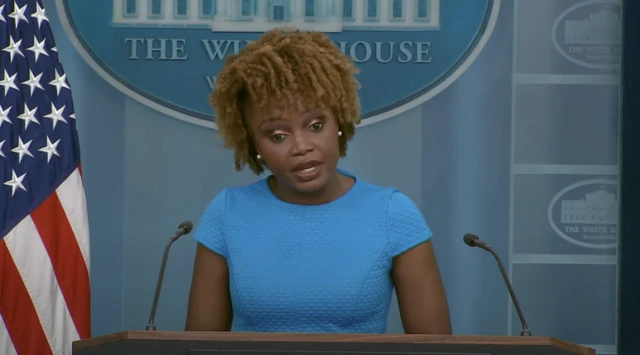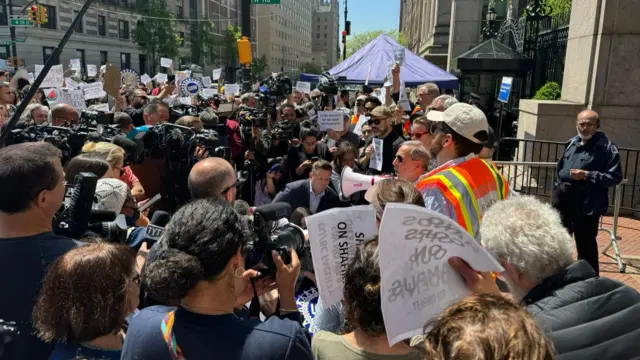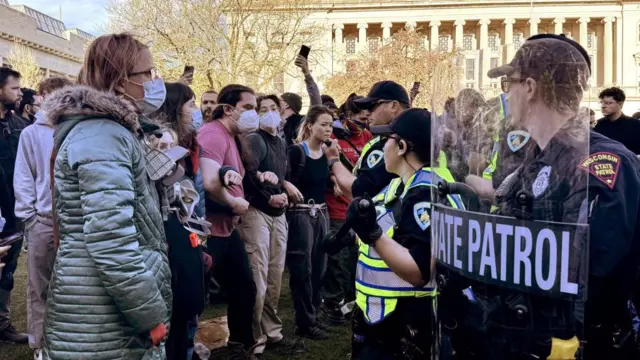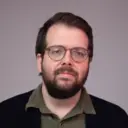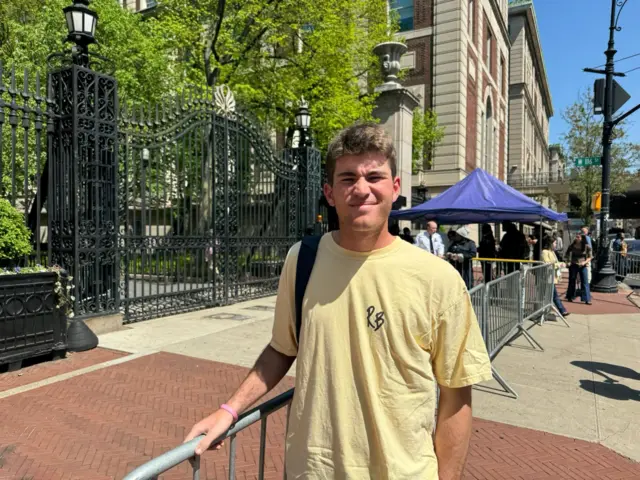Dozens of protesters gather outside VP speechpublished at 21:43 BST 1 May 2024
About two dozen protesters gathered outside Vice-President Kamala Harris' Wednesday event earlier today to show their support for Palestine.
Harris was speaking on reproductive rights in Jacksonville, Florida.
Pro-Palestinian protesters waved Palestinian flags and signs that read "Palestine will be free" and "end the occupation".
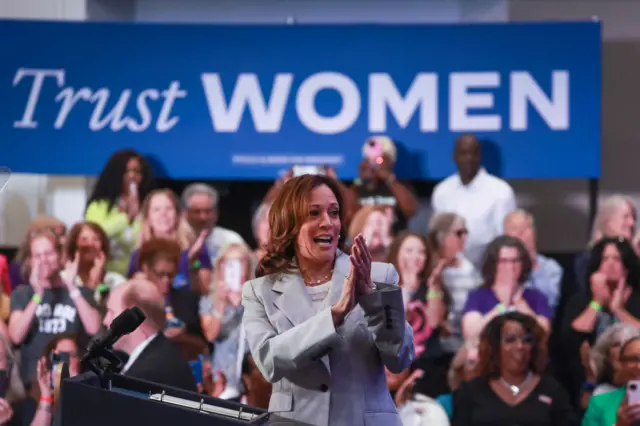 Image source, Getty Images
Image source, Getty Images
